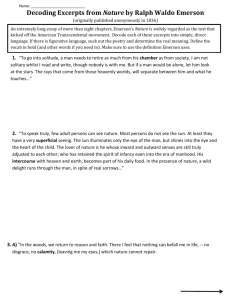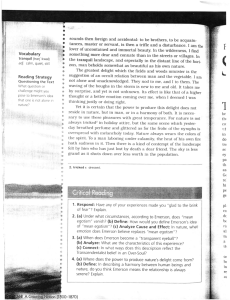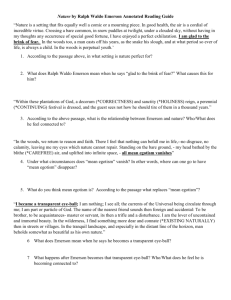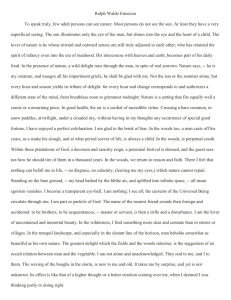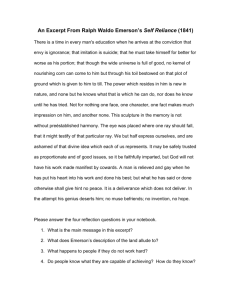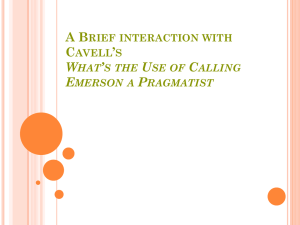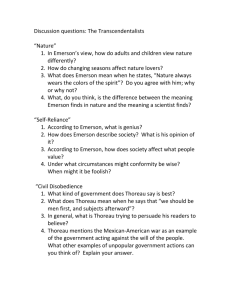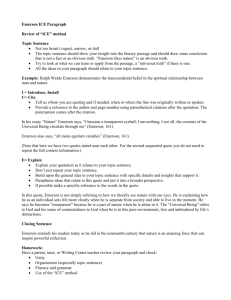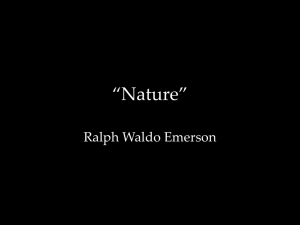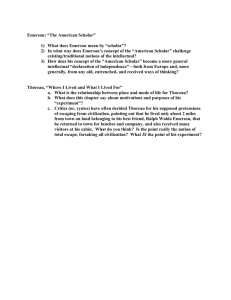Emerson's Nature: Transcendentalism & Self-Reliance
advertisement
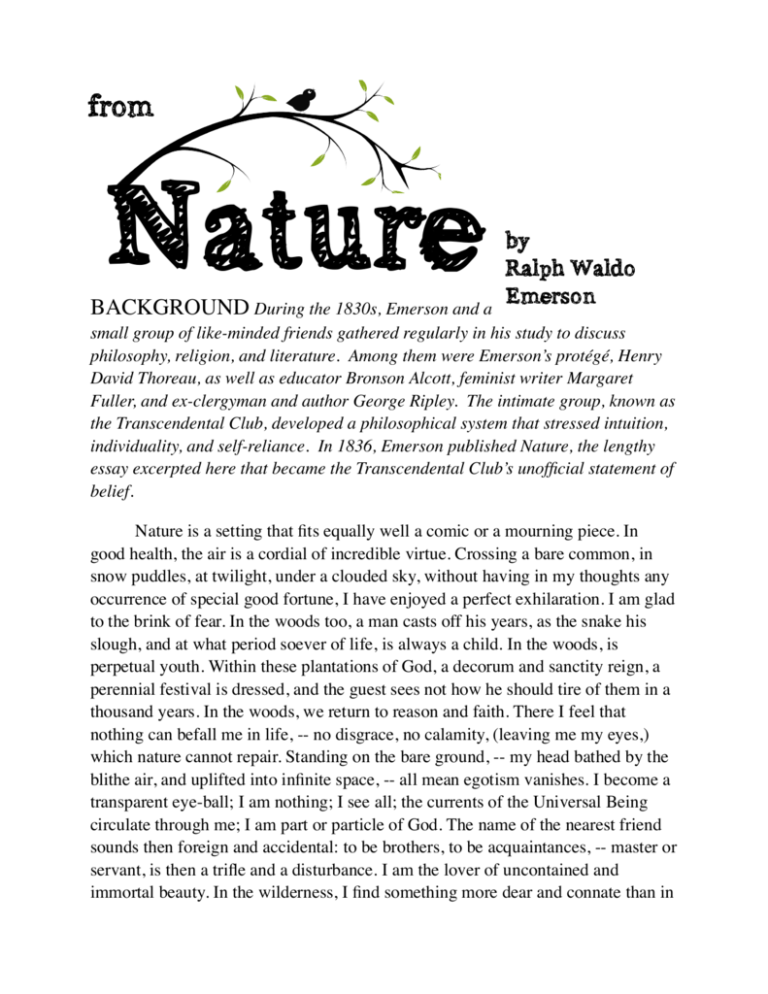
from Nature BACKGROUND During the 1830s, Emerson and a by Ralph Waldo Emerson small group of like-minded friends gathered regularly in his study to discuss philosophy, religion, and literature. Among them were Emerson’s protégé, Henry David Thoreau, as well as educator Bronson Alcott, feminist writer Margaret Fuller, and ex-clergyman and author George Ripley. The intimate group, known as the Transcendental Club, developed a philosophical system that stressed intuition, individuality, and self-reliance. In 1836, Emerson published Nature, the lengthy essay excerpted here that became the Transcendental Club’s unofficial statement of belief. Nature is a setting that fits equally well a comic or a mourning piece. In good health, the air is a cordial of incredible virtue. Crossing a bare common, in snow puddles, at twilight, under a clouded sky, without having in my thoughts any occurrence of special good fortune, I have enjoyed a perfect exhilaration. I am glad to the brink of fear. In the woods too, a man casts off his years, as the snake his slough, and at what period soever of life, is always a child. In the woods, is perpetual youth. Within these plantations of God, a decorum and sanctity reign, a perennial festival is dressed, and the guest sees not how he should tire of them in a thousand years. In the woods, we return to reason and faith. There I feel that nothing can befall me in life, -- no disgrace, no calamity, (leaving me my eyes,) which nature cannot repair. Standing on the bare ground, -- my head bathed by the blithe air, and uplifted into infinite space, -- all mean egotism vanishes. I become a transparent eye-ball; I am nothing; I see all; the currents of the Universal Being circulate through me; I am part or particle of God. The name of the nearest friend sounds then foreign and accidental: to be brothers, to be acquaintances, -- master or servant, is then a trifle and a disturbance. I am the lover of uncontained and immortal beauty. In the wilderness, I find something more dear and connate than in streets or villages. In the tranquil landscape, and especially in the distant line of the horizon, man beholds somewhat as beautiful as his own nature. The greatest delight which the fields and woods minister, is the suggestion of an occult relation between man and the vegetable. I am not alone and unacknowledged. They nod to me, and I to them. The waving of the boughs in the storm, is new to me and old. It takes me by surprise, and yet is not unknown. Its effect is like that of a higher thought or a better emotion coming over me, when I deemed I was thinking justly or doing right. Yet it is certain that the power to produce this delight, does not reside in nature, but in man, or in a harmony of both. It is necessary to use these pleasures with great temperance. For, nature is not always tricked in holiday attire, but the same scene which yesterday breathed perfume and glittered as for the frolic of the nymphs, is overspread with melancholy today. Nature always wears the colors of the spirit. To a man laboring under calamity, the heat of his own fire hath sadness in it. Then, there is a kind of contempt of the landscape felt by him who has just lost by death a dear friend. The sky is less grand as it shuts down over less worth in the population. 1. Under what circumstances, according to Emerson, does “mean egotism” vanish? 2. How would you define Emerson’s idea of “mean egotism”? 3. In nature, what emotion does Emerson believe replaces “mean egotism”? 4. Where does the power to produce nature’s delight come from? 5. In describing a harmony between human beings and nature, do you think Emerson means the relationship is always serene? Please explain. Thanks.
